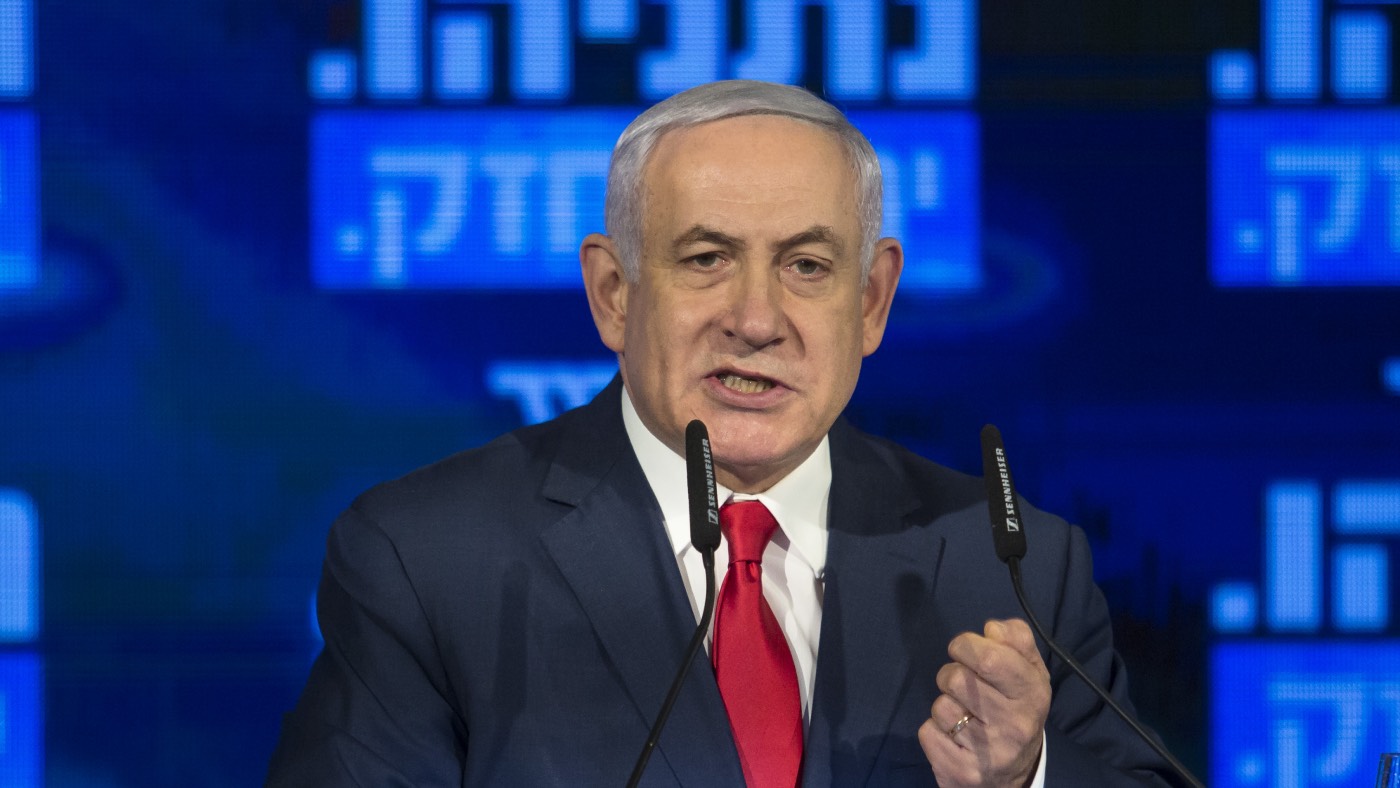Benjamin Netanyahu condemned for settlement annexation pledge
Palestinians say international ‘impunity’ must end for Israel's actions

A free daily email with the biggest news stories of the day – and the best features from TheWeek.com
You are now subscribed
Your newsletter sign-up was successful
Palestinian leaders have led a chorus of condemnation after Israel's Benjamin Netanyahu controversially announced he plans to annex settlements in the West Bank if he is re-elected on Tuesday.
Asked on television why he had yet to extend sovereignty to large West Bank settlements, the Israeli prime minister replied: “Who says that we won't do it? We are on the way and we are discussing it.
“You are asking whether we are moving on to the next stage - the answer is yes, we will move to the next stage.”
The Week
Escape your echo chamber. Get the facts behind the news, plus analysis from multiple perspectives.

Sign up for The Week's Free Newsletters
From our morning news briefing to a weekly Good News Newsletter, get the best of The Week delivered directly to your inbox.
From our morning news briefing to a weekly Good News Newsletter, get the best of The Week delivered directly to your inbox.
Chief Palestinian negotiator Saeb Erekat, said Israel will “continue to brazenly violate international law” for as long as “the international community will continue to reward Israel with impunity”.
Erekat, a close aide to Palestinian President Mahmoud Abbas, pinpointed Donald Trump’s “support and endorsement of Israel's violation of the national and human rights of the people of Palestine”.
Hamas spokesman Sami Abu Zuhri said Abbas's Palestinian Authority must halt its security cooperation with Israel in the West Bank. Speaking from Gaza, he said: “Netanyahu's dreams of annexing the West Bank will never be achieved and we will not allow that to happen.”
Settlements are regarded as one of the most divisive obstacles on the road to peace in the region. More than 400,000 Israelis now live in the West Bank, according to Israeli figures, among about 2.9m Palestinians.
A free daily email with the biggest news stories of the day – and the best features from TheWeek.com
Many countries consider settlements to be illegal under the Geneva conventions.
Commentators are interpreting Netanyahu’s statement as a bid to capture the right-wing vote ahead of tomorrow’s general election. The BBC’s Arab affairs editor, Sebastian Usher, wrote that the “potentially explosive” comments “will resonate with several parties with which he'll try to form a coalition government if he wins the biggest share of votes”.
Netanyahu is facing “a tight race” for re-election, The Observer says, but “with support from smaller pro-settlement, far-right and ultranationalist parties”, he may have a “better chance of forming a coalition government”.
Democratic presidential candidate Beto O’Rourke called Netanyahu a “racist” on Sunday.
Ibrahim Kalin, the spokesman for Turkish President Turkish President Tayyip Erdogan, was one of the first global figures to respond, saying western states must condemn Netanyahu’s words. “Will western democracies react or will they keep appeasing? Shame on them all!” he asked on Sunday.
-
 The environmental cost of GLP-1s
The environmental cost of GLP-1sThe explainer Producing the drugs is a dirty process
-
 Greenland’s capital becomes ground zero for the country’s diplomatic straits
Greenland’s capital becomes ground zero for the country’s diplomatic straitsIN THE SPOTLIGHT A flurry of new consular activity in Nuuk shows how important Greenland has become to Europeans’ anxiety about American imperialism
-
 ‘This is something that happens all too often’
‘This is something that happens all too often’Instant Opinion Opinion, comment and editorials of the day
-
 Greenland’s capital becomes ground zero for the country’s diplomatic straits
Greenland’s capital becomes ground zero for the country’s diplomatic straitsIN THE SPOTLIGHT A flurry of new consular activity in Nuuk shows how important Greenland has become to Europeans’ anxiety about American imperialism
-
 Epstein files topple law CEO, roil UK government
Epstein files topple law CEO, roil UK governmentSpeed Read Peter Mandelson, Britain’s former ambassador to the US, is caught up in the scandal
-
 Iran and US prepare to meet after skirmishes
Iran and US prepare to meet after skirmishesSpeed Read The incident comes amid heightened tensions in the Middle East
-
 Which way will Trump go on Iran?
Which way will Trump go on Iran?Today’s Big Question Diplomatic talks set to be held in Turkey on Friday, but failure to reach an agreement could have ‘terrible’ global ramifications
-
 Israel retrieves final hostage’s body from Gaza
Israel retrieves final hostage’s body from GazaSpeed Read The 24-year-old police officer was killed during the initial Hamas attack
-
 China’s Xi targets top general in growing purge
China’s Xi targets top general in growing purgeSpeed Read Zhang Youxia is being investigated over ‘grave violations’ of the law
-
 Ukraine, US and Russia: do rare trilateral talks mean peace is possible?
Ukraine, US and Russia: do rare trilateral talks mean peace is possible?Rush to meet signals potential agreement but scepticism of Russian motives remain
-
 Panama and Canada are negotiating over a crucial copper mine
Panama and Canada are negotiating over a crucial copper mineIn the Spotlight Panama is set to make a final decision on the mine this summer